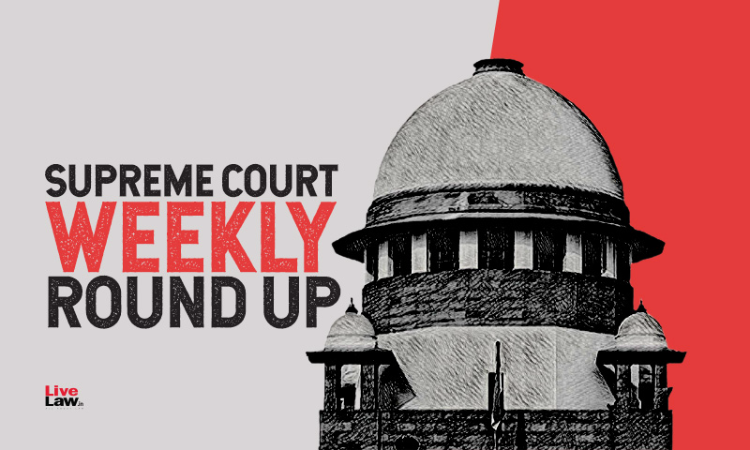Supreme Court Weekly Round Up- December 6 To December 12, 2021
Nupur Thapliyal
12 Dec 2021 5:30 PM IST

Next Story
12 Dec 2021 5:30 PM IST
JUDGMENTS THIS WEEK1. Supreme Court Upholds RBI Regulations For Export Ban On PPE Kits; Says 'Well Being Of Masses Over Right To Business Of Few'Case Title : Akshay N Patel versus Reserve Bank of India and othersCitation : LL 2021 SC 711 The Supreme Court this week upheld the measures adopted by the Reserve Bank of India to implement the ban imposed by the Union Government on the export...
